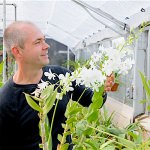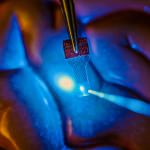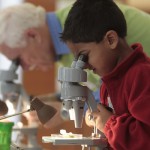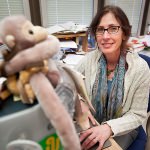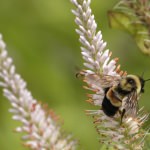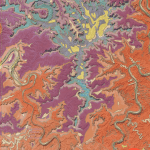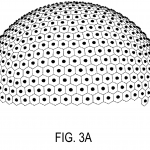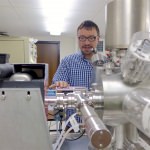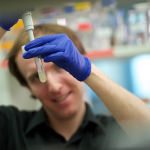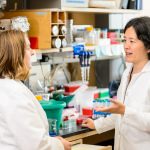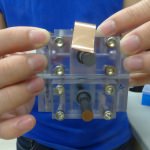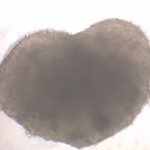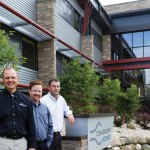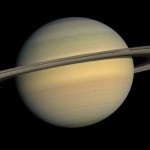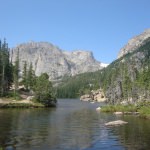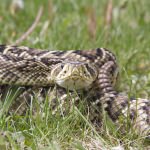Category Science & Technology
Mentors sought for science-minded middle schoolers
UW-Madison’s Adult Role Models in Science (ARMS) is seeking campus volunteers to help Madison area middle school students learn about careers in science, how science works and why it is important in their daily lives.
Karen Strier is elected president of International Primatological Society
For the first time in its 52-year history, the International Primatological Society has elected a University of Wisconsin–Madison scientist as its president: Karen Strier, Vilas Research Professor and Irven DeVore Professor of Anthropology.
New endowed chair honors developmental biologist Phil Newmark
Phil Newmark, a developmental biologist studying the mysteries of how the body regenerates damaged tissue, has started serving as the first recipient of the Burnell R. Roberts Chair in Regenerative Biology at the University of Wisconsin–Madison.
Arboretum prairies offer rare refuge for vanishing bumblebee
A proposal by the U.S. Fish and Wildlife Service to seek endangered status for the rusty-patched bumblebee has focused renewed attention on bumblebees living in the 1,200-acre natural area.
UW2020 funds projects to enhance research and infrastructure
The initiative seeks to fund research projects that have the potential to fundamentally transform a field of study, as well as projects that require significant development prior to the submission of applications for external funding.
Some brains are blind to moving objects
As many as half of people are blind to motion in some part of their field of vision, but the deficit doesn’t have anything to do with the eyes.
WARF patent drawing exhibit shows artistic side of science
For decades, the Wisconsin Alumni Research Foundation has helped UW–Madison inventors transform their ideas into reality, whether it’s a solar cooker, a self-tying shoelace device or even the DNA of the bubonic plague. Now WARF is displaying the visual beauty — and wide variety — of all those ideas.
Life in ancient oceans enabled by erosion from land
As scientists continue finding evidence for life in the ocean more than 3 billion years ago, those ancient fossils pose a paradox that raises questions about whether there was more land mass than previously thought.
Yeast knockouts peel back secrets of cell protein function
The study provided a level of detail not available even five years ago. Improved technology cut the time to analyze all the proteins in a yeast sample from four hours to one hour.
Bacteriology professor Jade Wang named HHMI Faculty Scholar
Jue “Jade” Wang, an associate professor of bacteriology at the University of Wisconsin–Madison, has been named a Howard Hughes Medical Institute (HHMI) Faculty Scholar.
A marriage made in sunlight: Invention merges solar with liquid battery
Solar charging and electrical discharging, according to a UW researcher, can be repeated for many cycles with little efficiency loss.
Engine software from UW spinoff being used around the world
A good portion of the world’s major engine manufacturers are using engine simulation software developed by Convergent Science of Madison, which has deep roots in the UW–Madison department of mechanical engineering.
New study examines where and how climate change is altering species
A new study shows how and where changing climate conditions could affect the communities of species in any given area. In…
How rattlesnakes got, and lost, their venom
Millions of years ago, the ancestor of modern rattlesnakes was endowed with a genetic arsenal of toxic weaponry, but in a relatively short period of evolutionary time, different types of snakes kept different types of toxin genes, and shed others.

